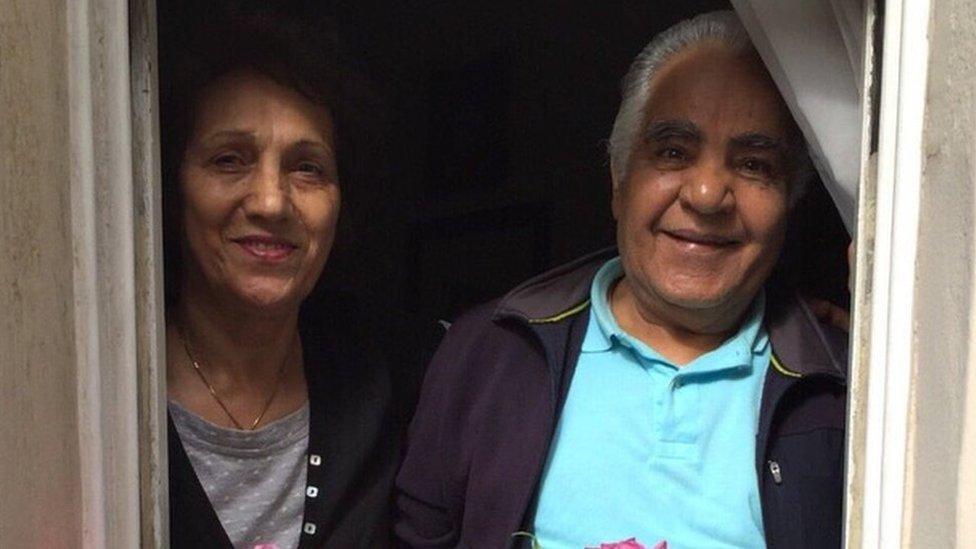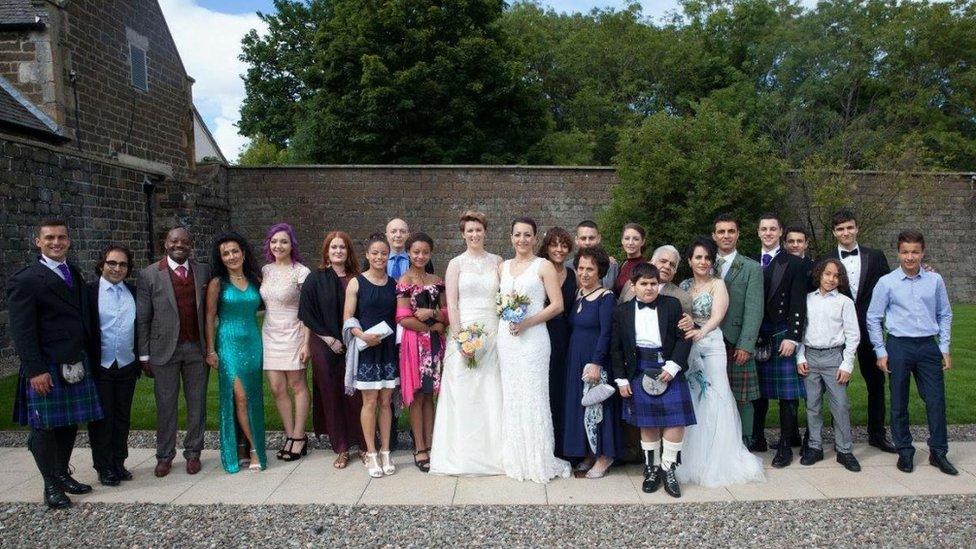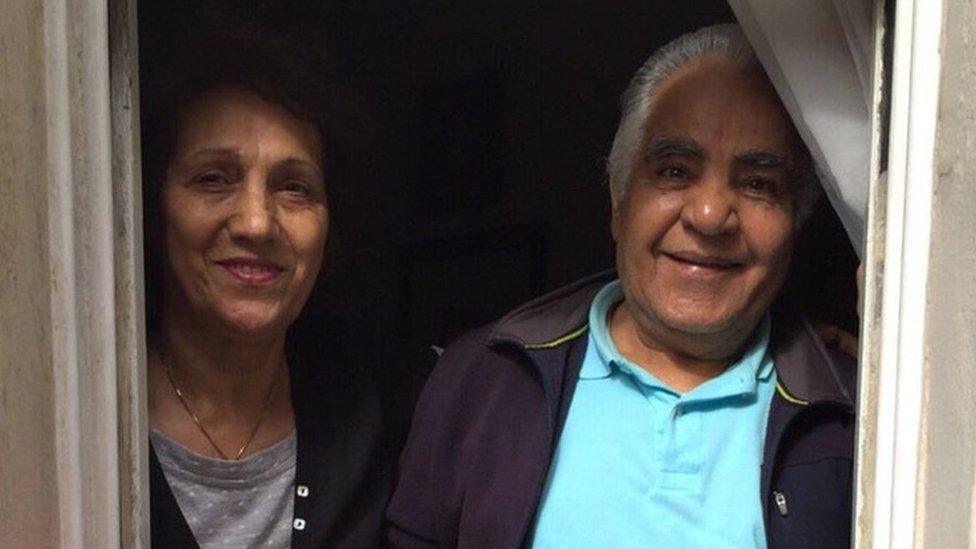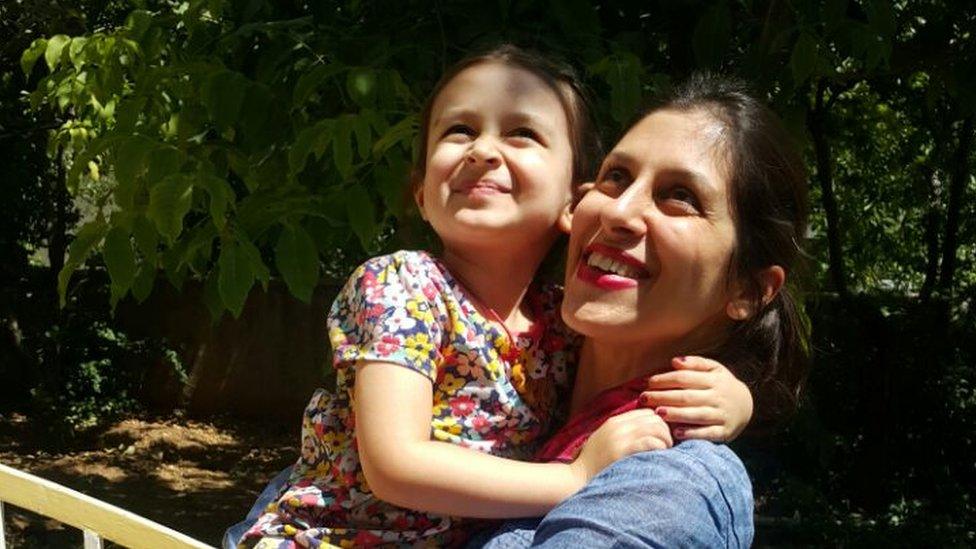'Frail' Edinburgh couple granted leave to stay in UK
- Published

Rezvan Habibimarand and Mozaffar Saberi
An elderly Iranian couple, threatened with deportation to Iran, have been granted leave to stay in the UK.
Mozaffar Saberi, 83, and Rezvan Habibimarand, 73, have lived in Edinburgh since the 1970s.
Despite buying a flat in the city more than 40 years ago, they had never sought UK citizenship.
The Home Office has informed the couple - grandparents of Scotland rugby international Damien Hoyland - that they will be issued with visas within days.
The couple's lawyer, John Vassiliou from McGill & Co Solicitors, revealed on Tuesday that a letter had been sent by the Home Office to the First-tier Tribunal (Immigration and Asylum Chamber) requesting the court's permission for the pending appeal to be withdrawn.
He said this should be actioned by the court in the next few days and then the Home Office can proceed to issue visas to the couple.
'Apply for citizenship'
Mr Saberi and Mrs Habibimarand's leave will be valid for a period of 30 months and will be renewable every 30 months until they have been in the UK for a total of 120 months.
This means that in around 10 years' time they will be eligible to apply for indefinite leave to remain and one year after that, if they wish to do so, they may apply for British citizenship.
The couple's plight was revealed last month as they argued that they should be allowed to remain on human rights grounds.
The Home Office said they had no right to remain but the legal team said they depended on support from nearby family and also play an important role caring for their severely autistic grandson.
Allow X content?
This article contains content provided by X. We ask for your permission before anything is loaded, as they may be using cookies and other technologies. You may want to read X’s cookie policy, external and privacy policy, external before accepting. To view this content choose ‘accept and continue’.
Since April 2000, Mr Saberi and Ms Habibimarand had held several visitors visas.
However, with their own health deteriorating and their desire to watch their 11 grandchildren grow up, they made a human rights application to stay in the UK in April 2013.

Rezvan Habibimarand and Mozaffar Saberi (seventh and eighth from right) and son Navid Saberi (second from left) at a family wedding
It came less than a year after immigration rules were tightened by then Home Secretary Theresa May.
Two human rights applications were refused by the Home Office previously.
'Pain is insurmountable'
The couple's son Navid Saberi thanked those who helped their case and passed on his parents' reaction to the news: "We've been given the world, everything, words cannot express how happy and grateful we are not to be separated from and be able to still see our grandchildren and children.
"This is the best news. We would like to thank everybody who helped and supported us and gave us hope."
Mr Saberi said his father added: "I am also happy that those who believed in human rights and helped and supported us based on the true nature of these rights helped us overcome this plight.
"We hope nobody gets separated or be in a situation to fear this separation from their children and grandchildren in the future anywhere in the world. The pain caused by this fear is insurmountable."
Lawyer John Vassiliou said: "It has been a long and exhausting road for the family.
"This case served to highlight the wider problem of how we treat adult family members of British citizens within our immigration system.
"In its current form, the system gives no weight to any emotional ties that might exist between elderly people and their adult children and grandchildren. This is an area of the immigration rules that has been crying out for reform since Theresa May's rule changes in 2012.
"We remain hopeful that a future government will take a more humane approach to the issue."
- Published18 January 2019

- Published14 January 2019
